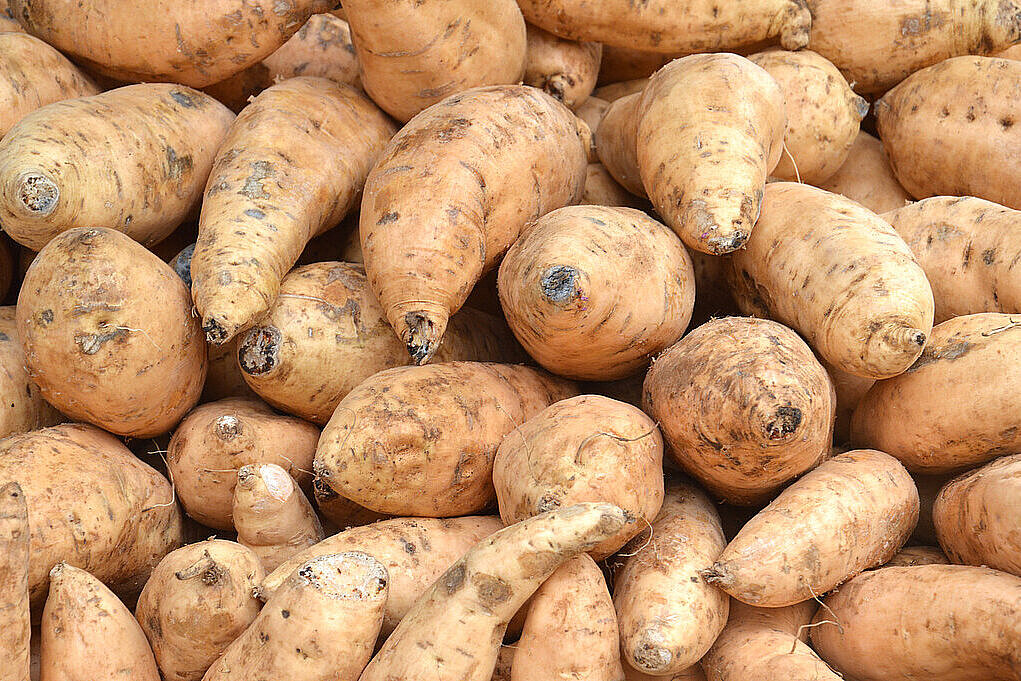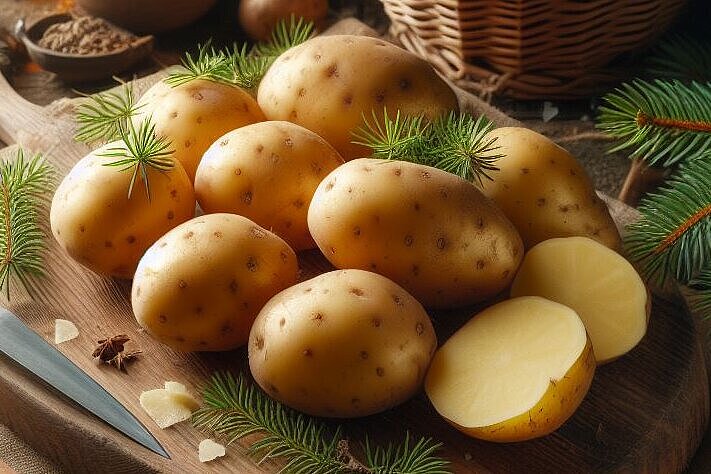Cassava

What is cassava?
Cassava is a plant from the spurge family that is cultivated in South America, Africa and Asia. The root of the plant is processed into flour, starch or flakes and can be boiled, baked or deep-fried. Cassava is gluten-free and has a neutral taste that combines well with other ingredients.
What are the benefits of cassava for dogs?
Cassava can have several benefits for dogs, especially if they have a food intolerance or allergy. Cassava is a hypoallergenic carbohydrate source that rarely causes allergic reactions. It is also easily digestible and can help with gastrointestinal problems. Cassava also provides important minerals such as potassium, magnesium and phosphorus, which are important for bone, muscle and nerve health.
What are the disadvantages of cassava for dogs?
Cassava is not without risk for dogs. The raw root contains toxic hydrocyanic acid compounds that can lead to severe poisoning. Cassava must therefore always be well cooked or fermented to reduce the toxins. In addition, cassava should only be fed in moderation, as it contains a lot of carbohydrates and can contribute to obesity or diabetes. Cassava also has a low content of proteins, fats, fiber and vitamins, which are necessary for a balanced diet for dogs.
Cassava can be a good alternative for dogs that have a grain intolerance or allergy. It is gluten-free, hypoallergenic and easily digestible. However, cassava must always be well cooked or fermented to remove the toxins. In addition, cassava should only be fed as a supplement to a high-quality protein source, as it can otherwise lead to deficiency symptoms or health problems.
If you notice any signs of hypersensitivity or poisoning in your dog, you should see your vet immediately. We are not a substitute for a vet, but we try to be as accurate as possible. Every dog reacts differently and we recommend you get a second opinion or consult your vet if in doubt.
Stay healthy and take good care of your four-legged friend!😊
Similar to Cassava
Tapioca, also known as tapioca starch, is a white, tasteless powder made from the processed and dried cassava root. The cassava plant is a tropical plant that is cultivated for its starchy root...
Sweet potatoes are not potatoes, but tubers that belong to the bindweed family. They originally come from South America and are now grown in many tropical and subtropical regions. Sweet potatoes...
Yams (Dioscorea) are a genus of climbing plants that form starchy tubers. They belong to the yam family (Dioscoreaceae) and have nothing to do with sweet potatoes, with which they are often...
Potatoes consist of 78% water and 18% carbohydrates. Carbohydrates are not essential for dogs, but can be a good source of energy, especially for active or sporty dogs. Carbohydrates are broken down...



